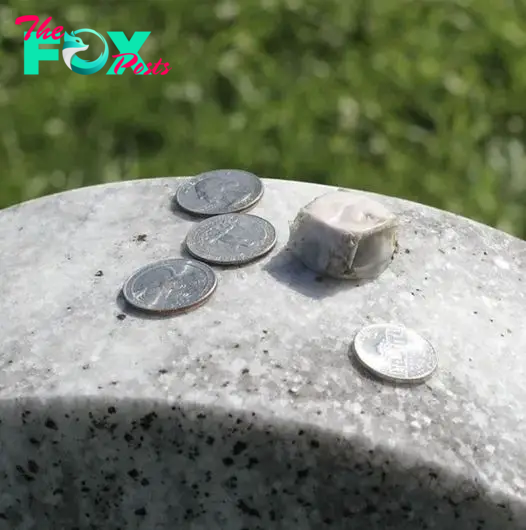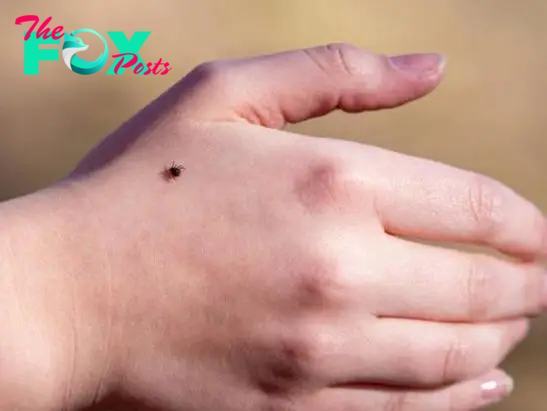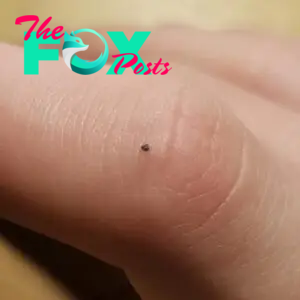Lifestyle
The Meaning Behind Placing Coins on Gravestones

Finding ways to celebrate a loved one’s memory becomes vital for many after they pass away, as losing a loved one is always a tough event. While flower arrangements and other tributes are typical, there is a specific meaning associated with laying pennies on gravestones, especially for veterans and service members and their families.
A Tradition Worth Keeping
Though its exact roots are unknown, some have speculated that the custom of laying coins on gravestones originated during the Roman Empire. However, according to Snopes, there is insufficient evidence to back up this assertion. However, one thing is certain: people who have a strong bond with Military people are aware of the sacrifices they make and are looking for a significant way to remember their lost colleagues.
It became increasingly difficult for people to express their emotions honestly during the Vietnam War. It became customary to place a coin on a soldier’s tomb to signify that someone had paid them a visit without running the danger of awkward talks regarding the political sides of the coNFLict. The gesture was a straightforward but effective way for people to express respect and unity.
Symbolic Honor Representations
Every penny placed on a gravestone has a special meaning associated with it. Here are few instances:
A penny is a sign that someone has paid their respects and visited the tomb.
Deeper emotional significance can be derived from a nickel, which represents a bond between the individual who left it and the dead soldier from boot camp.
A dime signifies cooperation, even if it was just briefly before splitting up.
The most important coin, the quarter, acts as a monument by informing the bereaved family that the person who left the coin was there during their time of grief.
These coins remind us of the sacrifices made by those who serve in the Military and act as tangible representations of respect and tribute, bridging the gap between the past and present.
Past Gravestones
Not all Military traditions involve coins, such as placing money on gravestones. Military troops are big fans of challenge coins, which have no monetary worth but are extremely significant. These coins, which stand for oneness, are frequently traded as trophies of friendship and honor.
Throughout History, coins have also had a variety of roles in cultural practices. They have been regarded as representations of good fortune, giving, and even riches. While this isn’t always the case, some people in the past were buried with their riches. For instance, it’s been reported that two dollars and fifty cents were buried with Abraham Lincoln’s eyes covered.
The deeper significance of laying pennies on gravestones is to commemorate and recognize the extraordinary efforts made by those who are serving in the military and their families, even though there may not be a clear relationship between money and this practice. It serves as a reminder to ourselves that their sacrifices are priceless.
How To Keep Head Lice Away From Children (And Adults!)

Parents may find dealing with head lice to be quite frustrating, but the good news is that prevention doesn’t have to be difficult. Tea tree oil is an easy-to-implement and highly effective daily practice.
Just in time for back-to-school season, fellow parent Kim Wright posted a helpful hint on Facebook. She advises making a diluted tea tree oil spray for your kids’ hair or mixing a few drops of tea tree oil into their shampoo. This home cure deters insects in addition to helping to repel lice.

Even with our greatest efforts, lice may still infect some kids. In that case, be calm. There are several strategies for getting rid of these bothersome creatures.
It’s crucial to keep in mind that adults can also have lice. So why not give it a try as a preventative measure on yourself with a tea tree oil spray? You may enjoy peace of mind and prevent lice for your entire family by implementing these preventative measures.
-

 Lifestyle45m ago
Lifestyle45m agoSHOCKING NEWS: Beyoncé Claims Diddy Hid Michael Jackson, Who Faked His Death With Video Evidence to Prove the King of Pop Is Alive and Living in Diddys Mansion.cau
-

 Lifestyle45m ago
Lifestyle45m agoOMG IT HAPPENED ! Jamie Foxx Finally Speaks About P Diddy Rumors! Today im gonna say it all! In 2023 he almost k*lled me because i refused to.cau
-

 Lifestyle2h ago
Lifestyle2h agoWATCH: Vivek Oberoi gifts expensive car to his father | The Express Tribune
-

 Lifestyle2h ago
Lifestyle2h agoSohail Ahmed praises Diljit Dosanjh’s admiration for Nusrat Fateh Ali Khan | The Express Tribune
-

 Lifestyle6h ago
Lifestyle6h agoLindsay Lohan Recalls Iconic Comeback at ‘The Parent Trap’ Premiere, Teases Future Disney Projects .Linh
-

 Lifestyle6h ago
Lifestyle6h agoKneecap’s Móglaí Bap Raises £30,000 for Gaza Food Aid with 10k Daily Runs .Linh
-

 Lifestyle7h ago
Lifestyle7h agoHow Kajol's unibrow helped a young Sonam | The Express Tribune
-

 Lifestyle7h ago
Lifestyle7h agoIt's not political, it's people's lives: Jennifer Lawrence | The Express Tribune























